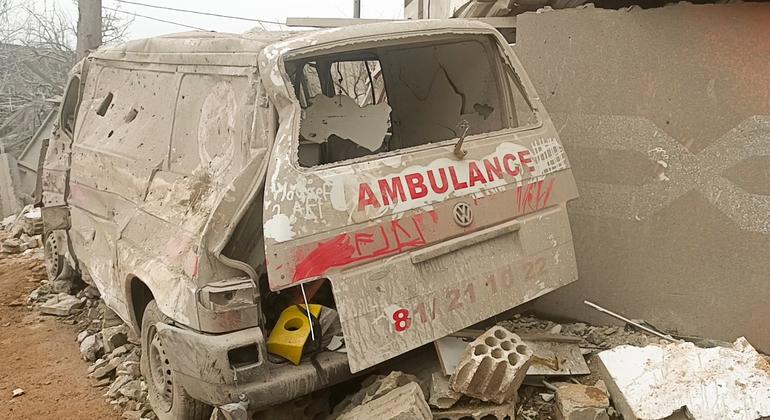The United Nations has been closely monitoring the escalating tensions between Lebanon and Israel, as violence continues to spiral out of control along the Blue Line. The UN’s top official in Lebanon, Jeanine Hennis-Plasschaert, recently embarked on an official visit to Israel to meet with senior government officials. Hennis-Plasschaert emphasized that there is no military solution that will make either side safer, underscoring the urgent need for de-escalation and dialogue to resolve the conflict.
UN Secretary-General António Guterres expressed grave concern over the deteriorating situation in the region, particularly the large number of civilian casualties, including women and children. The Secretary-General condemned the escalating violence and emphasized the need to protect civilians on both sides of the Blue Line, as well as UN personnel. The situation has become increasingly dire, with thousands of people displaced due to intense Israeli bombing campaigns and Hezbollah attacks.
In Lebanon, reports emerged of the Israeli military sending warnings to residents in the south to stay away from buildings or villages associated with Hezbollah. The armed group launched numerous projectiles into northern Israel, prompting a series of retaliatory strikes. The violence has uprooted tens of thousands of Israelis and displaced many Lebanese from their homes.
The United Nations Interim Force in Lebanon (UNIFIL), responsible for patrolling the Blue Line, expressed grave concern for the safety of civilians amidst the deadliest day of violence in the region since the outbreak of the conflict. Lt. Gen. Aroldo Lázaro, Head of Mission and Force Commander of UNIFIL, has been engaged in efforts to de-escalate the situation and reduce tensions between the parties. The mission stressed the importance of upholding international law and preventing attacks on civilians, which could constitute war crimes.
UNIFIL called for a full commitment to the implementation of UN Security Council Resolution 1701, which is crucial for addressing the root causes of the conflict and ensuring lasting stability in the region. The international community has been urging both Lebanon and Israel to exercise restraint and work towards a peaceful resolution to the crisis.
Amid mounting pressure for de-escalation, the UN Security Council convened an emergency session to address the deadly Israeli strikes on Beirut and southern Lebanon. The session followed a week of heightened cross-border fire between Hezbollah and Israeli forces, fueled by wireless device explosions targeting the militant group. The Security Council emphasized the need for all parties to prioritize the protection of civilians and adhere to international law.
In addition to the escalating violence, the region has been grappling with a humanitarian crisis exacerbated by recent heavy rainfall. The rain has inundated central Gaza, causing widespread flooding and displacement of vulnerable populations. Humanitarian organizations have been working tirelessly to provide assistance to those affected by the flooding, but the situation remains dire.
As the conflict in the region shows no signs of abating, the United Nations continues to call for an immediate ceasefire and a return to dialogue to resolve the underlying issues fueling the violence. The international community stands ready to support efforts to de-escalate the situation and work towards a peaceful resolution that ensures the safety and security of all civilians in the region.









